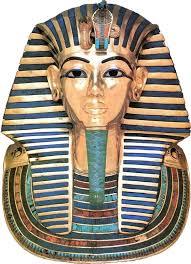Ancient Egypt was ruled by a number of charismatic people who have since left their mark on history. Some of them were

1) Akhenaten:
He was a Pharaoh of the Eighteenth dynasty of Egypt, ruled for 17 years and died perhaps in 1336 BC or 1334 BC. He is especially noted for abandoning traditional Egyptian polytheism and introducing worship centered on the Aten, which is sometimes described as monotheistic or henotheistic
2) Amenhotep III:
so known as Amenhotep the Magnificent was the ninth pharaoh of the Eighteenth dynasty. According to different authors, he ruled Egypt from June 1386 to 1349 BC or June 1388 BC to December 1351 BC/1350 BC] after his father Thutmose IV died. Amenhotep III was the son of Thutmose by Mutemwia, a minor wife of Amenhotep’s father. His reign was a period of unprecedented prosperity and artistic splendor when Egypt reached the peak of her artistic and international power. When he died (probably in the 39th year of his reign), his son initially ruled as Amenhotep IV, but later changed his own royal name to Akhenaten.
3) Cleopatra VII:
She was a member of the Ptolemaic dynasty, a family of Greek origin that ruled Egypt after Alexander the Greats death during the Hellenistic period. The Ptolemies, throughout their dynasty, spoke Greek and refused to speak Egyptian, which is the reason that Greek, as well as Egyptian languages, were used on official court documents like the Rosetta Stone, By contrast, Cleopatra did learn to speak Egyptian and represented herself as the reincarnation of an Egyptian goddess, Isis.
Cleopatra originally ruled jointly with her father Ptolemy XII Auletes and later with her brothers, Ptolemy XIII and Ptolemy XIV, whom she married as per Egyptian custom, but eventually, she became sole ruler. As pharaoh, she consummated a liaison with Julius Caesar that solidified her grip on the throne. She later elevated her son with Caesar, Caesarion, to co-ruler in name.
4) Ramses II:
as the third Egyptian pharaoh (reigned 1279 BC – 1213 BC) of the Nineteenth dynasty. He is often regarded as the greatest, most celebrated, and most powerful pharaoh of the Egyptian Empire. His successors and later Egyptians called him the “Great Ancestor”. Ramesses II led several military expeditions into the Levant, re-asserting Egyptian control over Canaan. He also led expeditions to the south, into Nubia, commemorated in inscriptions at Beit el-Wali and Gerf Hussein.
